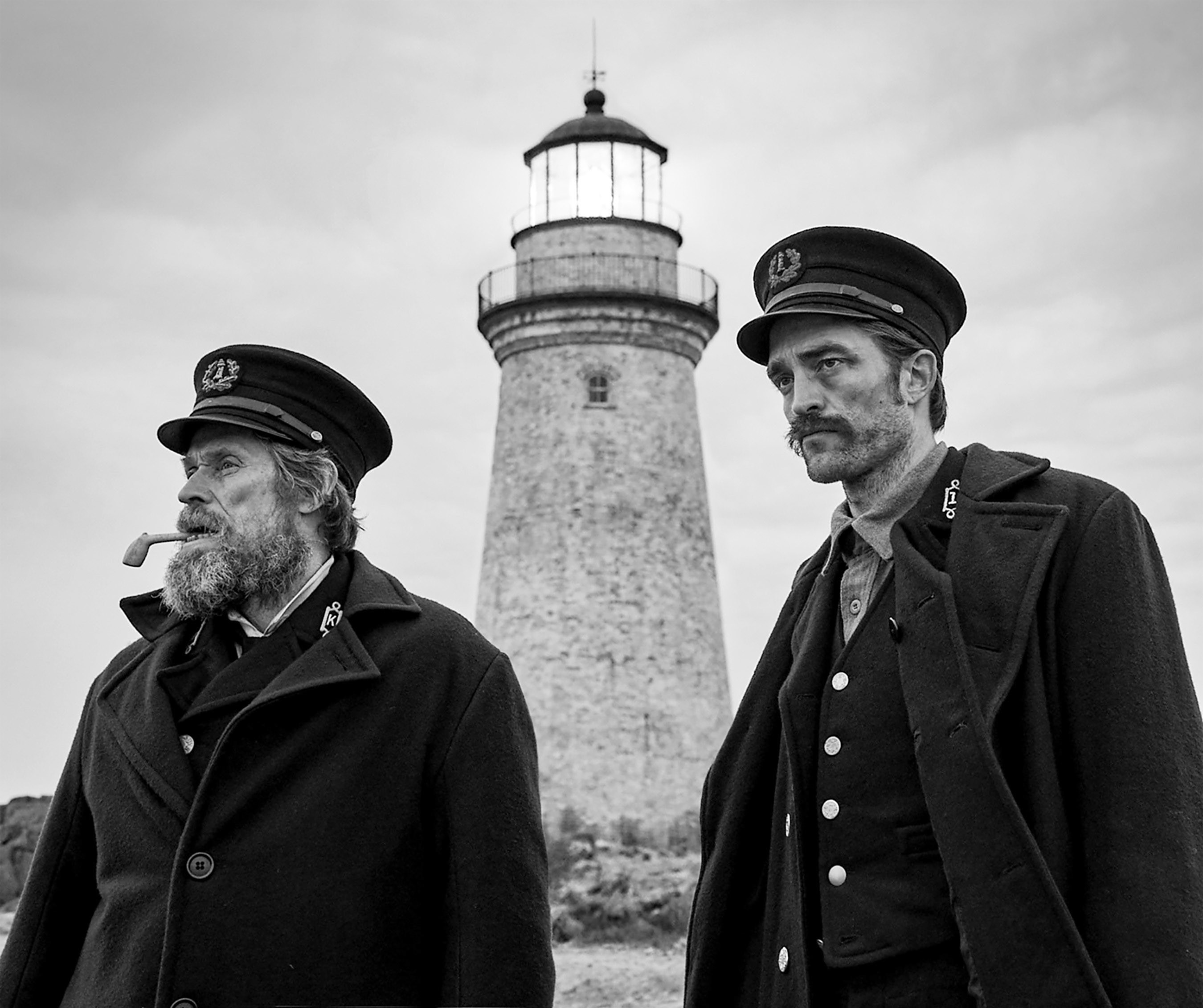Robert Eggers’ sophomore film is a period piece that dwells in the world of folklore and superstition. Much like his debut film The Witch, an intense amount of research was done to portray the lifestyle of the sailors at the time (Sarah Orne Jewett’s writings being one of his primary sources). The lighthouse itself, the place in which half of the movie occurs, was built from scratch. More than pure historical accuracy, each detail accumulates to create an intense and uncanny mood. The foreign setting and colloquialism of the dialect can only be alienating for its audience, yet the film manages to mysteriously draw us in. The ominous lighting, as well as the contrast between the suffocating lighthouse and the disorientating outdoors never lets us feel at ease. Instead of welcoming us with an open door, The Lighthouse dares us to cross that threshold without promise of being friendly or gentle.
Beasts, mermaids, tentacles, crushed seagulls, bloodied and wet bodies – this film is a dirty piece of work, in every sense of the word. As we watch it, we are constantly torn between attraction and repulsion. It manages to incorporate numerous qualities at once: a light and vulgar humour, a gut-wrenching anxiety, as well as a playful sexiness. The dialogue, written by Eggers and his brother Max, is baffling and magnetizing. The two actors deliver each line with brilliance: Willem Dafoe’s voice is as terrifying and imposing as Mark Korven’s score, and Robert Pattinson is outright electrifying. The scenes between the two are terribly exquisite, visceral, and at times even erotic.
In a place with such little human presence, the sea that surrounds the two men soon becomes her own character, her own deity, in the eyes of the protagonist, Ephraim Winslow. Much like in Alien, the monster is constantly felt throughout the film, preying on Ephraim in every corner. And much like in The Shining as well as in David Lynch’s films, an ungraspable force tries to take possession over his body and mind and pushes him to madness. In an interview with Esquire, Eggers explained how he wanted to make something that would be “maybe not scary, but tense and hallucinatory and strange and provoke more questions than it would provide answers”. This movie could be analyzed through various thematic angles – masculinity, labour, the unconscious – and yet its mystery will never be solved. In its own way, The Lighthouse manages to haunt and horrify us without ever revealing what we are actually afraid of.
Image Credit: A24 Studios

